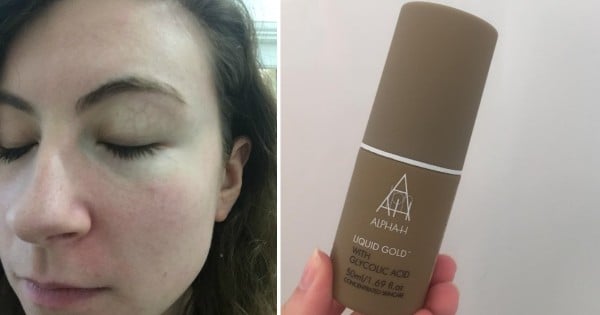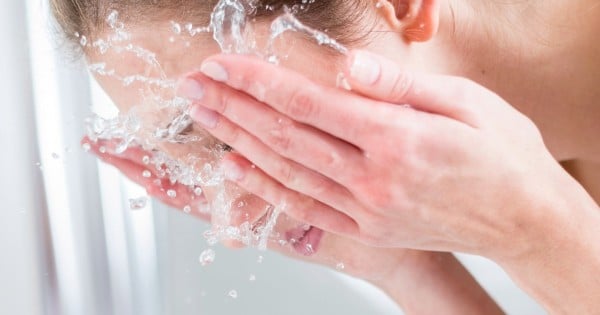
When the word “acid” is thrown around in the beauty world, it’s easy to conjure up images of irritated and sore skin. Yep, I was happy to give it a miss.
Then a few weeks ago, I was fed up with my skin being bleurgh. It was congested, I was getting more pimples than usual and it just looked downright dull. There was certainly no Jennifer Lopez dewy glow to see here.
On the recommendation of a friend, I tried the Alpha-H Liquid Gold exfoliating treatment, a cult product that promises to improve texture and moisture within the skin as well as decrease wrinkle depth.

